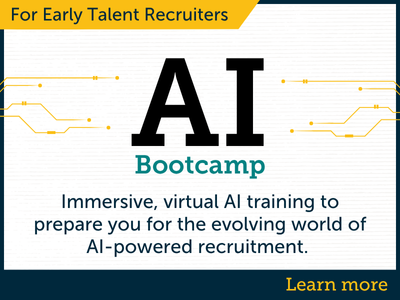Despite greater recognition of their negative impacts on the workforce, lack of diversity and an abundance of unpaid internships remain issues, says Anjali Lalani.
Recent data collected by NACE support this observation. NACE’s 2021 Student Survey found that opportunity is disproportionately dispersed among the student population as, overall, historically marginalized groups are underrepresented in paid internships, overrepresented in unpaid internships, and more likely to have not participated in any internship.
This is particularly problematic because, as NACE research consistently shows, paid interns receive more job offers and are more likely to secure a job prior to graduation than unpaid interns.
Lalani, Smith Center Interns and Fellows Program Administrator at the National Museum of African American History and Culture, points out that there are several reasons for this in the nonprofit sector.
“Employers tend to overfocus on the polish of a resume,” she explains.
“Their expectations are similar to those they have when interviewing candidates for full-time jobs, instead of hiring on potential. However, our jobs are to help students develop their skills during their internships.”
Other missteps nonprofit employers make that limit access to internships include recruiting solely through existing connections “because that’s the way we have always done it” and basing recruiting on what internal employee-alumni are saying and/or want.
To improve access to internships, nonprofits must assess their processes and programs and make necessary changes. For one, Lalani says, employers need to examine who is applying for internships and who is getting hired.
“If an employer is not getting enough diversity in its application stage, it needs to alter its marketing and outreach,” she says.
“Is it overly reliant on fit in the organization’s culture? Does it provide enough information? Does it use too much jargon? In the development stage, think about the entire program, from start to finish.”
Lalani suggests describing work culture in as much detail as possible. During recruiting, she also recommends evaluating candidates using rubrics.
“What are you looking for?” she asks.
“Does GPA, school, or major really matter? These, too, can be barriers to paid internships.”
Lalani encourages organizations to make interns, supervisors, and mentors active participants in updating the maintaining the program by seeking their insight. For example, ask interns about their experience throughout the entirety of the process, from application to offboarding; if they felt respected throughout; and about the money they needed to spend by Day 1 to take the internship.
“From the employer perspective, they should spend time examining barriers to successful entry to the workforce, find gaps that exist, and make changes to fill them in,” she says.
“They should be purposeful. Is the structure just the way it has always been done, or could it be reworked and improved? They need to offer training and support and throughout the program. In addition, they should have multiple people participate in the selection process to mitigate bias and hold supervisors accountable for who they are selecting and how they are selecting them.”
Career centers can aid in increasing access to paid internships, too.
“Career centers should consider only posting paid positions and their salaries, and find ways to have start-up funding, even for paid internships,” Lalani says.
“Many organizations—especially nonprofits—can’t pay interns in advance. Also, colleges, in general, should not require students to pay tuition during their internships; students should not have to pay to work.”
Lalani is noticing positive trends. She is seeing more paid internships in the nonprofit space, and has seen a growing number of institutions and associations refuse to post unpaid internships.
“Ultimately,” Lalani explains, “diverse teams make better decisions. If the team has different viewpoints and experiences, they have fewer blind spots and do better work.”
Anjali Lalani will present “What to Think About When Thinking About Internships: Increasing Access to Opportunities” during NACE22.






